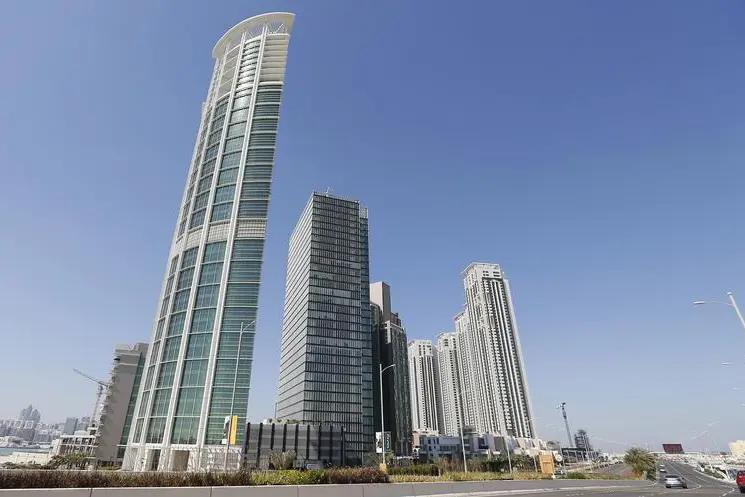PHOTO
The residential property market in Abu Dhabi is defying the broader trend of declining prices in the UAE, as steady demand and a limited supply of new units drives up rental costs. Sales may be more limited in the latter half of the year, however, as weaker oil prices prompt a shift in foreign demand.
Up and away
Rental costs in Abu Dhabi gained momentum in the second quarter, rising 6% over the period, with up-market residences in prime locations seeing hikes of up to 12%, according to a report by real estate service company Asteco from July.
Jerry Oates, the company's general manager for Abu Dhabi, said the acceleration is being driven by the limited stock of residential units on the market.
"We've seen a spike in this quarter, mainly because of a lack of supply," Oates told local media. "There's been growth in some areas but not in others, and it's this lack of supply in certain areas that is driving things."
These market dynamics appear unlikely to change, at least in the medium term, according to a first-quarter market report from real estate consultancy JLL. A 2% increase in stock is expected over the year, compared to annual population growth of around 7%.
Tackling the problemThe jump in rental rates has prompted the government to consider reinstituting restrictions on rent hikes. On July 9, local media reported that authorities were considering implementing a rental index, setting out limits on increases in various districts of the city.
A 5% annual cap on rent adjustments was introduced in 2009 but was subsequently removed in late 2013. Since then, price increases have gained pace, feeding into inflation and putting affordable residential accommodation out of reach for many, according to local press.
The Department of Municipal Affairs confirmed it has drafted legislation to regulate the real estate sector, which is expected to come into effect at the beginning of 2016. While the organisation is developing indicators for residential rentals, details of any restrictions on increases have yet to be released.
Sales forecastMeanwhile, sales activity in the residential market is forecast to cool somewhat in the remainder of the year, as economic growth slows on weaker energy prices and less appetite from some foreign investors, notably those from Russia as a result of international sanctions and a weaker rouble.
Indeed, the UAE's residential market is expected to soften from 2015 into early 2016, Standard & Poor's noted in June, with residential market prices in Dubai tipped to fall by around 10%. Abu Dhabi could also experience the effects of a correction, according to the agency.
There is some evidence this is already taking place, with a report by real estate information firm Reidin showing a slight decline in residential property prices in May. According to the report, apartment sale prices were down 4.5% year-on-year (y-o-y) and 0.52% for the month. While this was balanced somewhat by a 0.8% month-on-month increase in villa sale prices, over the past year these too have slipped, down 1.2% y-o-y.
Any flattening in the market is likely to be short lived, however, with the narrow supply of new residential units setting the market up for further growth once excess stock is absorbed.
On the foreign investor front, weaker demand from Russia could be offset by renewed Iranian interest. The preliminary international agreement signed in mid-July could see sanctions on Iran progressively lifted, creating potential for a flow of new investment into Abu Dhabi as Iranians seek out holiday residences and businesses look to set up shop and secure housing for managers and staff.
Oxford Business Group 2015





















